

“If I met someone that was at risk for rapidly progressing ADPKD, I would strongly encourage them to begin seeing a nephrologist, and not to wait.”
-Cari
Talk to your nephrologist to see if JYNARQUE is right for you.
Patient images reflect their health status at the time the photo was taken. Cari is a real patient and has been compensated by Otsuka America Pharmaceutical, Inc. for her time.
Patients were compensated for their time. Patient images reflect the health status at the time the photos and videos were taken.
Patient STORIES
PATIENT STORIES
Explore this collection of first-hand experiences from real patients with ADPKD. Watch videos and read stories across a variety of topics about living with ADPKD and taking JYNARQUE® (tolvaptan). See below for videos and stories.
ADPKD=autosomal dominant polycystic kidney disease.
Toggle to view articles or videos


Future
Zack is living with rapidly progressing autosomal dominant polycystic kidney disease, or ADPKD, and taking JYNARQUE.
ADPKD=autosomal dominant polycystic kidney disease.
Get to know Zack.
Zack was diagnosed with autosomal dominant polycystic kidney disease (ADPKD) 25 years ago. For a long time, even with a family history of the condition, he never thought he would be impacted by ADPKD. A former officer in the U.S. Coast Guard and a fairly accomplished triathlete, Zack saw himself as linked to strength, stamina, and perseverance. Being affected by ADPKD made him suddenly feel like a 1965 model pickup truck, as opposed to a high-performance machine. But after living with ADPKD for several years, Zack has learned the key to managing it—knowing your limits, assembling your support team, and investing in your future.
Please remember that none of the information discussed in this article should replace the conversations with your healthcare provider. Zack is sharing his own thoughts and experiences, so please keep that in mind as your thoughts and experiences may be different.
Talk to your doctor to see if JYNARQUE is right for you.
You have a family history of ADPKD. Before you were diagnosed, what did you understand about the condition?
Zack: Growing up, I knew my mom had some kind of medical condition. I saw her trying several medications to combat her symptoms. By the time I was in college, I knew that it was a hereditary polycystic kidney disease, so there was a chance I could have it as well.
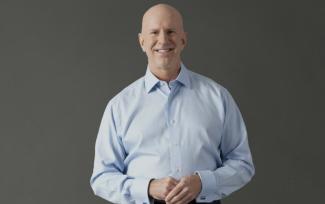
How did your mom’s experience with ADPKD prepare you for managing it?
Zack: I took my cues for how to live with ADPKD from my mom. She focused on preserving and protecting her kidney function. Together, my parents adapted to the disease, but they never let ADPKD dramatically impact their active lifestyle. My mom is 82, with no kidney transplant, and isn’t on dialysis. I hope my future is similar. My aunt tried to ignore her ADPKD, and it cost her her life way too early.
Even though my intent was to follow my mom’s example, there were some ways I had to adapt to manage my own ADPKD.
Do you have an example of how you adapted?
Zack: Sure. The first lesson I learned was: know your limits.
As an emergency manager in the U.S. Coast Guard, I responded to the worst oil spill to ever occur in the Gulf of Mexico, the Deepwater Horizon oil spill off the coast of Louisiana. My job was to coordinate the planning efforts to stop the flow of oil and clean up what had already discharged. It was exhausting, stressful, and physically and emotionally draining work. I worked 16-hour days for four weeks straight. Finally, I was released just before the Fourth of July weekend. My wife and I were going to spend the weekend in San Antonio to celebrate and relax. However, on the drive over, a cyst in my kidney burst.

Oh my goodness! Had you ever experienced anything like that before?
Zack: I hadn’t, and having a kidney cyst burst is excruciatingly painful. My mom describes it as equivalent to “giving birth,” which makes me even more appreciative of her having me!
The pain caused me to go unconscious. Luckily, I was not driving. My wife took me to the hospital. There, I realized I was not invincible, I was not Captain America. I wasn’t courageous; I was careless. I ignored my ADPKD. It didn’t ignore me. It was a vicious, painful reminder that I had not been following my mom’s principles of preserving and protecting my kidneys. I had to reexamine my work-life balance and set new limits.
What helps you maintain those limits and keep managing ADPKD every day?
Zack: My wife really deserves all the credit for getting me to where I am today. I met her a little later in life, so ADPKD has been a part of our marriage from the get-go and, like my parents, we’ve managed it as a team. She researched nephrologists, insurance, pharmacies, formularies, treatment availability, copays, drug interactions, etc. She also puts up with me shamelessly drinking both our waters at restaurants—and then having the audacity to ask our waiter for refills!—and then at home having to pause movies so I can run and pee all the time! She is so patient, encouraging, supportive, and understanding.
My extended family is also a great resource and support network. Assembling your support team is key to managing ADPKD.
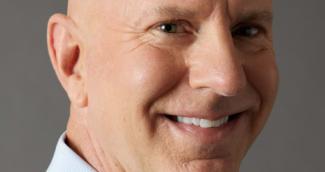
What do you do in terms of slowing down the progression of your ADPKD?
Zack: The silver lining of being diagnosed in my late 20s is that I was able to take early steps to manage my kidney function through lifestyle changes, diet, exercise, and medication. Those early steps also led to me finding out that I had rapidly progressing ADPKD years later because my nephrologist regularly monitored my eGFR, my kidney volume, and the size of my cysts through sonograms and MRIs. I invest in my future with ADPKD even now.
When I talked with my current nephrologist about taking JYNARQUE, it was because I felt it could make a difference in my life years down the road. By taking JYNARQUE now, I’m investing in my kidneys’ future because JYNARQUE has been shown to slow kidney function decline in adults with rapidly progressing ADPKD.
Before I started JYNARQUE, my doctor and I discussed that it can cause serious and potentially fatal liver problems. That’s why I have regular blood tests to monitor my liver function as part of the Tolvaptan for ADPKD Shared System Risk Evaluation and Mitigation Strategy (REMS), due to the risk of serious liver injury. My doctor also warned me that I would have to drink large quantities of water when taking JYNARQUE. I didn’t see that as a negative consequence. Now, having to use a bathroom because I’m drinking so much water sure is! But personally, I can handle it. I just have to be more deliberate and methodical in my plans and activities. Of course, that is my experience with JYNARQUE. Someone should talk to their own healthcare provider to see if JYNARQUE is right for them.
Overall, how do you view your journey with ADPKD?
Zack: Living with ADPKD is challenging. Sometimes it’s a struggle. But you can manage. My life has evolved. Not dramatically, and some may say even for the better.
eGFR=estimated glomerular filtration rate; MRI=magnetic resonance imaging.
Patients were compensated for their time. Patient images reflect their health status at the time the photos and videos were taken.


by a Treatment Option
Joseph is living with rapidly progressing autosomal dominant polycystic kidney disease, or ADPKD, and taking JYNARQUE.
ADPKD=autosomal dominant polycystic kidney disease.
Get to know Joseph.
Autosomal dominant polycystic kidney disease (ADPKD) was always a force in Joseph’s family. It can be traced back to his paternal great-grandmother, affecting Joseph and many of his relatives. In Joseph’s family, the consequences of ADPKD included early death related to health complications, removal of kidneys, dialysis, and lots of transplants. Joseph saw his relatives respond to ADPKD in a variety of different ways, from ignoring it to an intense focus on diet and exercise. He chose to face ADPKD proactively and pursue treatment options. Joseph wants others with ADPKD to do what they can to take charge of their condition.
Please remember that none of the information discussed in this article should replace the conversations with your healthcare provider. Joseph is sharing his own thoughts and experiences, so please keep that in mind as your thoughts and experiences may be different.
Talk to your doctor to see if JYNARQUE is right for you.
ADPKD plays a big part in your family history. How did you understand it as a kid?
Joseph: At some point growing up, my parents told my brother, sister, and me about this disease that my dad had that could also affect us. My younger brother found out that he had ADPKD in high school.
The reality in our family is that ADPKD means that somewhere around age 55, you may be put on a transplant list and receive a new kidney. If that isn’t possible, then you may face dialysis three times a week for the rest of your life.
What was it like to watch multiple family members get transplants or go on dialysis?
Joseph: Many of my family members, when it was their time, successfully received transplanted kidneys. They recovered quickly and went back to work and life feeling better. That was not what I saw in my dad’s life.
That sounds scary. What did your dad have to face with ADPKD?
Joseph: My dad had his first transplant in his mid-50s. Things went well at first and there was a lot of optimism. However, he had many complications and went on to have two more transplants in the next 10 years. Between the high points of the transplants, there was a lot of dialysis and several hospitalizations due to infections from the immunosuppression medications. In fact, my mom estimates that my dad has been hospitalized over 20 times (and still counting) in a little over a decade for complications directly related to his ADPKD and the transplants.
For several years now, his third donated kidney has been damaged and functioning at a reduced level, but it has been adequate to keep him going and active. He does know that if this one fails, his body won’t be able to handle another transplant.
When my dad had his first transplant, ADPKD became real for me in a way it never had before. I remember thinking, Oh man…that’s going to be me one day.
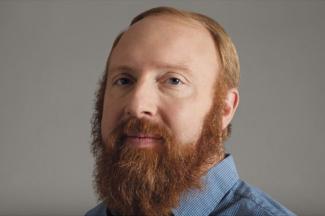
What was it like when you officially got your ADPKD diagnosis?
Joseph: I was around age 30 when my family doctor ordered a kidney ultrasound to see if I had ADPKD too. I remember where I was standing in my bedroom when he called to tell me that it showed cysts on my kidneys. It was real. I knew I would have to deal with the consequences of ADPKD like many others in my family.

What did you decide to do to help manage your ADPKD?
Joseph: A few years after my diagnosis, my cousin, who also has ADPKD, connected me with some people at a major research clinic who were doing some drug studies related to ADPKD. I went through some short-term studies with them and then began my first long-term study with tolvaptan, which was later approved by the FDA to slow kidney function decline in adults at risk of rapidly progressing ADPKD. It felt good to be a part of research that could benefit other people with ADPKD…and that I myself might benefit from the drug, too.
My nephrologist at the clinic and the other study coordinators were quick to share the importance of a healthy lifestyle. Through my many, many trips to the clinic, I learned the importance of exercising, watching my protein consumption, controlling my blood pressure, and staying at a healthy weight. I was pleased that all of these things plus tolvaptan would create an arsenal to help me in my fight to slow down kidney function decline.
What made you decide to stick with tolvaptan as a treatment option?
Joseph: I began to wonder if tolvaptan—plus living a healthy lifestyle—could slow the decline in my kidney function, and I tried to imagine what kind of an impact that would have. After watching all of the ups and downs that my mom and dad have gone through with ADPKD, these thoughts seemed very attractive.
After the FDA approved tolvaptan as JYNARQUE, I continued with the medication and kept my nephrologist from the clinic. Because JYNARQUE can cause serious and potentially fatal liver problems, I have regular blood tests to monitor my liver function as part of the Tolvaptan for ADPKD Shared System Risk Evaluation and Mitigation Strategy (REMS).
I have had to make adjustments while on JYNARQUE. I drink a lot of water every day. Wherever I go, I need to bring a full water bottle and keep my eye out for a bathroom. The swing between thirst and the pressure of a full bladder is constant. My kids have gotten used to that fact whenever we travel. They understand that Dad needs to stop to use the bathroom a lot, and they roll with it. Keep in mind, this is just my experience and others’ could be different.
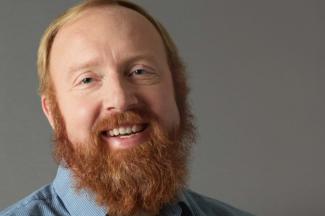
You saw various ways of handling ADPKD growing up. How do you try to model life with this condition for your own family?
Joseph: My goal for my children is for them to see we’ve done everything we can about ADPKD, and it doesn’t have to stop them from living their lives or dreams. They know that I have some kind of disease, that I’m also doing everything I can to fight it, and I’m trying to help other people with ADPKD.
My family still travels, pursues the vocations we are passionate about, and lives life not because I have ADPKD, but in spite of it. I rest in the fact that I am doing everything I can to slow the decline of my kidney function. We don’t ignore ADPKD—we deal with it and move on with life. Hopefully, there will be lots more options for the generation to come, so that they don’t have to let ADPKD define who they are and what they can do.
Patients were compensated for their time. Patient images reflect their health status at the time the photos and videos were taken.


With Your Healthcare Team
Fernando is living with rapidly progressing autosomal dominant polycystic kidney disease, or ADPKD, and taking JYNARQUE.
ADPKD=autosomal dominant polycystic kidney disease.
Please remember that none of the information discussed in this article should replace the conversations with your healthcare provider. Fernando is sharing his own thoughts and experiences, so please keep that in mind, as your thoughts and experiences may be different.
When I was a sophomore in college, I organized a blood drive. When it was my turn to donate, the nurse became so alarmed by how high my blood pressure was, she threatened to drive me to the emergency room herself. Not long after, a nephrologist diagnosed me with rapidly progressing autosomal dominant polycystic kidney disease, or ADPKD. I didn’t want to worry my family or friends, so, I only said, “I was diagnosed with ADPKD, but I’m okay and I don’t want to talk about it.” That did not stop me from worrying about it, however. I was confused and shaken. The moment I heard “You have ADPKD” my life changed forever. Even though I tried not to, I spent hours thinking and 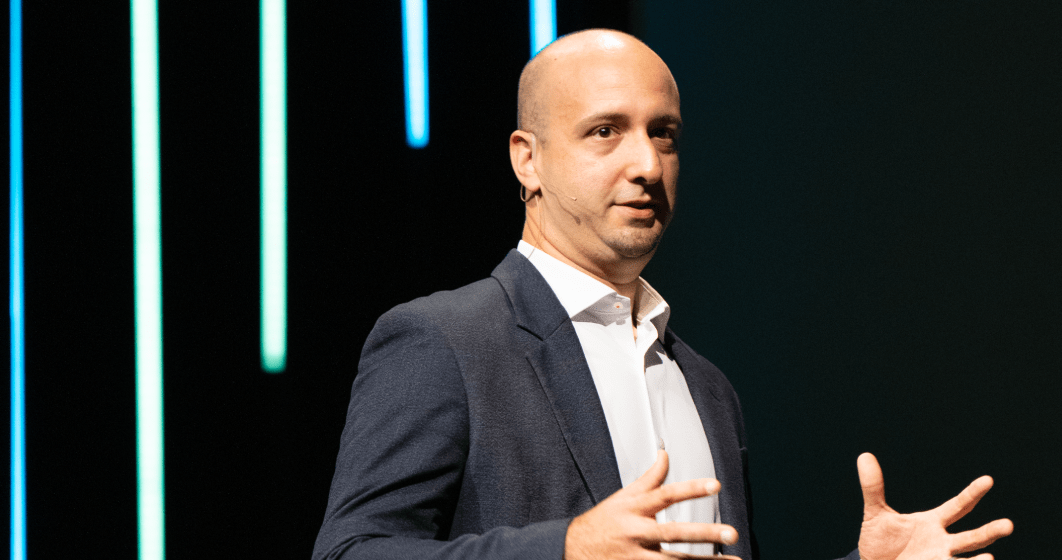 “Good communication with my healthcare team has helped me at every step in my ADPKD journey.” worrying about my kidneys. For years, I looked at every decision through the lens of my ADPKD worries. Semi-joking, my nephrologist suggested I switch to worrying about my stomach—because changing my diet was an important part of managing ADPKD. But I was fixated. And by not sharing my worries, I let my kidneys control my whole life in an unhealthy way.
“Good communication with my healthcare team has helped me at every step in my ADPKD journey.” worrying about my kidneys. For years, I looked at every decision through the lens of my ADPKD worries. Semi-joking, my nephrologist suggested I switch to worrying about my stomach—because changing my diet was an important part of managing ADPKD. But I was fixated. And by not sharing my worries, I let my kidneys control my whole life in an unhealthy way.
Thankfully, I have always had a great relationship with my healthcare team: a nephrologist, a urologist, and a nutritionist. I have always been open and communicative with my healthcare providers. It’s important to me that we be able to work together. This is especially true when it comes to managing my life with ADPKD. From the beginning, my nephrologist shared all her contact information with me and encouraged me to reach out to her via phone, email, and apps whenever I have questions or problems. Knowing she is there for me 24/7 means a lot.
My healthcare team also communicates well with each other about my case. I want everyone involved in my care to know about any changes or findings in my lab results, so they have time to consult with one another, if necessary, before and after discussing things with me. So, I do my part to help ensure they stay up to date by bringing important information with me during our appointments.
Good communication with my healthcare team has helped me at every step in my ADPKD journey—from diagnosis to finding and staying on treatment. My doctors share their knowledge with me, and I talk with them about any research and information I’ve come across. That way, I feel confident that I’m making informed decisions about my ADPKD care. Early on, my nephrologist told me she was keeping an eye on clinical trial results for a treatment called tolvaptan which she thought might be a good fit for me. So, I started following the research as well. Then the FDA approved JYNARQUE® (tolvaptan) for adults who are at risk for rapidly progressing ADPKD. To me, it felt as if a window of hope was opened. JYNARQUE was a treatment that might help slow my kidney function decline. My nephrologist and I discussed the serious side effects of JYNARQUE, including the risk of serious and potentially fatal liver injury. I appreciated that there was a required plan, known as the Tolvaptan for ADPKD Shared System Risk Evaluation and Mitigation Strategy (REMS), to closely monitor my liver function through regular blood tests. We also talked about the more common side effects, including increased thirst and frequent urination.
Over time, I’ve realized that open communication about my ADPKD diagnosis gives me a great and inexplicable sense of relief. Sharing information with my healthcare team, of course, is essential. But sharing ADPKD information with my family and others offers me another opportunity: Setting a good example—especially for my young son. He and my wife are the lights of my life and my motivation to fight for my health and smile every day. Now I wake up every day with a good feeling, knowing that my healthcare team and I are taking an active approach to help manage my ADPKD. ADPKD changed my life, but now I choose to share my diagnosis to help change others’ lives.
So, I encourage everyone to find a healthcare team you can work closely with. And I offer three pieces of advice: Stay strong, stay positive, and make them all wonder how you are still smiling.
Patients were compensated for their time. Patient images reflect their health status at the time the photos and videos were taken.


Nancy is living with rapidly progressing autosomal dominant polycystic kidney disease, or ADPKD, and taking JYNARQUE.
ADPKD=autosomal dominant polycystic kidney disease.
Please remember that none of the information discussed in this article should replace the conversations with your healthcare provider. Nancy is sharing her own thoughts and experiences, so please keep that in mind, as your thoughts and experiences may be different.
My life with autosomal dominant polycystic kidney disease (ADPKD) has had so many avenues and detours, U-turns and challenges. I have been blessed with excellent care and support from physicians, pharmacists, lab techs, and more. But most important has been the support of my family.
When I was diagnosed, it was very unexpected. I was 53 years old and was completely blindsided by this revelation. I searched our family history for the DNA correlation. My brother remembered that our sister had kidney issues when she was younger. She had been given a
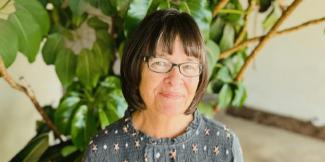
When I was diagnosed, it was very unexpected. I was 53 years old and was completely blindsided by this revelation. I searched our family history for the DNA correlation. My brother remembered that our sister had kidney issues when she was younger. She had been given a diagnosis of kidney disease and was told that there was nothing they could do for it. A year before my diagnosis, my sister passed away from what was thought to have been a heart condition. We didn’t have any conclusive answers, and no other family member recalled this diagnosis.

My focus then turned from my own concerns to those of my six children. This diagnosis could potentially affect them and subsequent generations. The guilt I felt was, at times, overwhelming. I had to remind myself that I was not in control and there was nothing I could have done to prevent this. These wonderful people were adults, some with children of their own, in the midst of launching their careers or going off to college. With a great deal of prayer and God’s grace, I summoned courage and was able to tell them. Their responses were loving and full of hope. I was deeply humbled and grateful for this wonderful family I had been given.
My children and I discussed the possible genetic occurrences and symptoms that could indicate a problem. I encouraged them to discuss this family diagnosis with each of their physicians, as there is a 50% chance of ADPKD being passed on genetically. They took my advice, and each of them have been evaluated for the disease.
Three of my children have since been diagnosed with ADPKD, and one of them is now taking JYNARQUE® (tolvaptan). Before starting treatment, they were told that JYNARQUE can cause serious liver problems, so because of that, they would need to monitor their liver function through the Tolvaptan for ADPKD Shared System Risk Evaluation and Mitigation Strategy (REMS). They were also told of JYNARQUE's most common side effects, which include increased thirst and frequent urination. The other three have declared themselves as potential kidney donors. Before the diagnosis, I was already incredibly proud of each one of them. Now, 16 years later, I am more so. I love watching them continue with their life plans, not allowing ADPKD to disrupt their journeys. Yes, there have been difficulties, but greater than these are the bonds that hold us together. Every one of them has a strong faith that will see them through tough times and a love for others that propels them forward. I am grateful and blessed by each of their walks.
My only regret is not being able to be there for my dear sister. If she had the care that I have been so fortunate to have, I am sure she would have lived a more comfortable life, filled with the same love and support I have enjoyed.
Patients were compensated for their time. Patient images reflect their health status at the time the photos and videos were taken.


Erika is living with rapidly progressing autosomal dominant polycystic kidney disease, or ADPKD, and taking JYNARQUE.
ADPKD=autosomal dominant polycystic kidney disease.
Please remember that none of the information discussed in this article should replace the conversations with your healthcare provider. Erika is sharing her own thoughts and experiences, so please keep that in mind, as your thoughts and experiences may be different.
There has been one constant in my life—change. I’m always adapting. Before I was diagnosed with autosomal dominant polycystic kidney disease, or ADPKD, I would travel back and forth from the United States to Mexico City, where I’m originally from, to visit my family. When I met my Canadian husband, we had the opportunity to live in different parts of the world—Miami, Paris, Denmark, San Francisco, and currently, Pennsylvania. Moving every two years has been exciting and full of change. The biggest change I went through was when my mother passed away from kidney failure due to her ADPKD. I knew that I didn’t want to go down the same route my mother did. When I moved to Pennsylvania, I met a new nephrologist who mentioned there was a medication that might work for me. After years of seeing different nephrologists, and being told to eat healthy, exercise, and monitor my blood pressure, I was happy to hear that there was a treatment option that could slow the progression of my ADPKD.
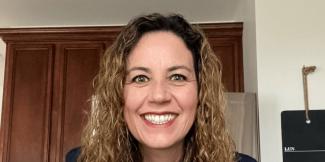
my mother passed away from kidney failure due to her ADPKD. I knew that I didn’t want to go down the same route my mother did. When I moved to Pennsylvania, I met a new nephrologist who mentioned there was a medication that might work for me. After years of seeing different nephrologists, and being told to eat healthy, exercise, and monitor my blood pressure, I was happy to hear that there was a treatment option that could slow the progression of my ADPKD.
I knew that my disease was rapidly progressing, so when my doctor mentioned JYNARQUE® (tolvaptan), I was excited, but starting medication comes with weighing the risks and benefits. He told me that JYNARQUE can cause serious and potentially fatal liver problems, so it is important to adhere to scheduled checkups to assess liver function. My doctor also explained to me that the most common side effects of JYNARQUE are thirst and increased fluid intake, making large amounts of urine, urinating often, and urinating at night.
I went home and shared the news with my husband. He was very excited that there was a treatment option for my ADPKD. And of course, when I told my dad and sister, they were really happy to hear it and full of hope. I did some research, read the material, understood the risks, discussed it with my husband, and decided that I would try JYNARQUE. I then went back to my doctor to discuss starting the medication.
I did experience some side effects like thirst, so I always kept a water bottle on hand. I also experienced frequent urination which could be challenging. It’s not easy to find a bathroom all the time! But please remember, this is just my experience, and yours may be different. You should talk to your healthcare provider to see if JYNARQUE is right for you.
I feel like I’ve gotten pretty good at adapting to change throughout my life. Adapting to life on JYNARQUE has come with some changes to my lifestyle and daily routine. Now, I take one pill in the morning during breakfast and a second one eight hours later. I have an alarm on my phone because sometimes I lose track of time, so it’s a helpful reminder, especially when the family and I are traveling. We normally go to Canada or Mexico for our vacations. Our kids love being immersed in our cultures. We love going to sporting events and visiting stadiums. Like I said, my husband is Canadian, so of course, we love going to hockey games and soccer matches. When we aren’t traveling, we like to settle down and play board games as a family. Personally, I love to dance and recently got back into dance fitness. Having a treatment option has given me the confidence to continue doing what I love.
Thank you.
Patients were compensated for their time. Patient images reflect their health status at the time the photos and videos were taken.